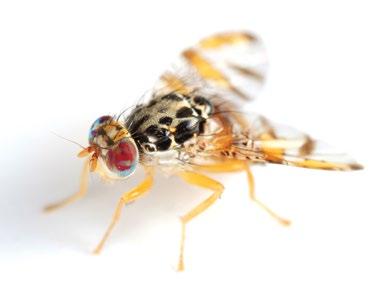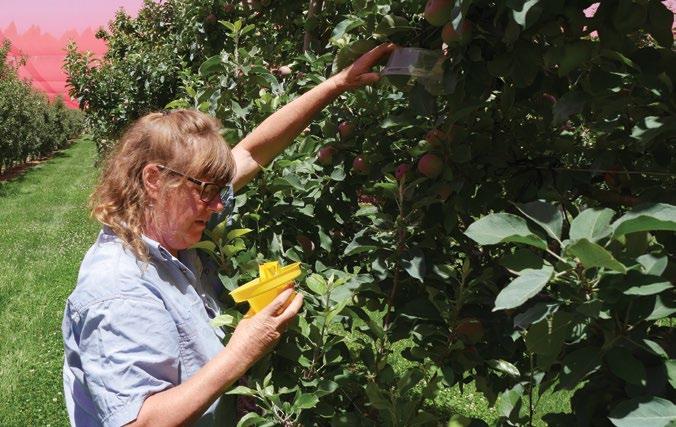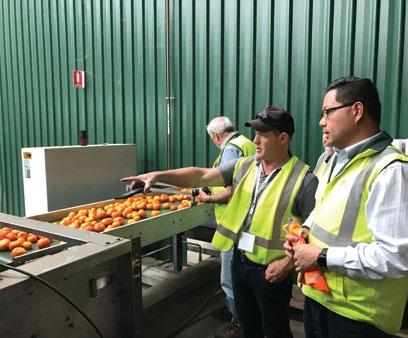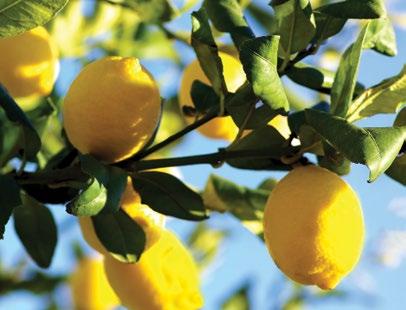
2 minute read
Apple pests and export markets
Case study Apple pests and export markets
BY KIM JAMES SENIOR RESEARCH OFFICER, DPIRD
Advertisement
AHorticulture Innovation-funded project between CSIRO, the Department of Primary Industries and Regional Development (DPIRD), and industry body Pomewest is looking at systematic pest management and monitoring to access new export markets.
This project will evaluate a ‘Systems Approach’, which involves a number of measures to provide the level of protection from a specific pest or disease that an importing country requires. The West Australian case study is part of a broader national collaboration between industry, researchers and regulators to help Australian horticultural businesses realise export market opportunities by developing a systems approach. Systems Approaches consider the combined effect of monitoring programs, good in-field management, grading in the packinghouse and other steps that are part of good agricultural practice. With the right verification processes, we could demonstrate that fruit export is acceptable to these markets without substantially increasing the cost of production.
3 DPIRD Manjimup Technical Officer — Helen Collie — inspecting a trap.

The project involves a surveillance • Determine the cumulative efficacy network of about 450 traps across 19 required to satisfy trading partners orchards and 14 town sites in Manjimup that apple trade via a Systems and Pemberton to monitor for known Approach will provide an acceptable pests including Mediterranean fruit level of protection from pests of fly, Light brown apple moth and quarantine concern. The case study is currently expanding its moth surveillance into other pome fruit growing areas to better understand the spread and impact of moths as pests of quarantine concern. Growers are encouraged to continue their yearly IPM and pest control programs in their orchards and their region. Western fruit moth; and not-known pests Queensland fruit fly and Codling moth. Fruit cutting to evaluate the absence of pests of quarantine concern will also be implemented. The project will collect data from two or more measures with a systems approach, which will be analysed and modelled by CSIRO to produce The project involves a surveillance network of about 450 traps. supporting evidence for future Pomewest and apple industry market MORE INFORMATION access applications. Contact Susie Murphy White, Pomewest Project Manager,at: The case study activities include: susan.murphywhite@dpird.wa.gov.au • Develop market access options for apples produced in the south-west of the state • Monitor and control pests of quarantine concern to determine the risk arising from each systems approach measure


update citrus












